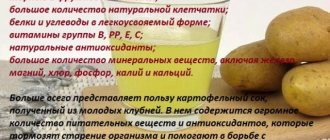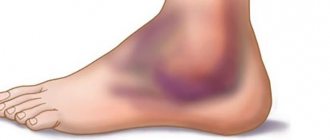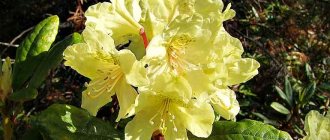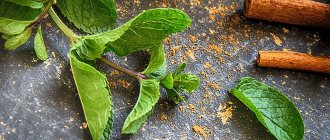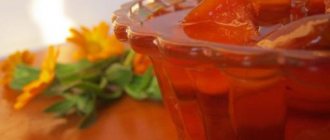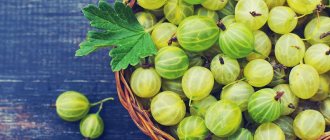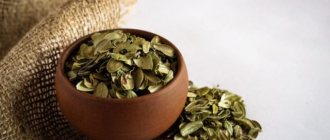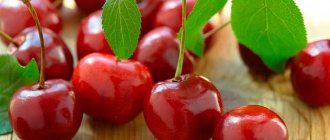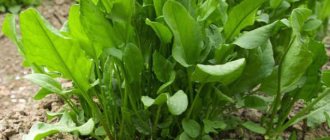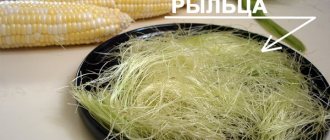Hello, dear readers! The peculiar taste properties of apricot kernels have long attracted adults, and are especially popular with children. When consuming these grains, the question often arises: are they beneficial or harmful?
The Tien Shan region in China is considered to be the birthplace of apricot. This is a very ancient fruit tree, which was described by the Chinese Emperor Zhu, who lived 2200 BC. e. From China, apricot came to Armenia, the Middle East and Central Asia.
The apricot was brought to Rome by Armenian merchants in the first century BC. e. called "Armenian apple". The apricot appeared in Europe in the 16th century, and in Russia only in the 17th century. In Ukraine, apricot is called “zherdel”, which indicates its direct “arrival” from Persia.
Apricot fruits are widely used in cooking. Eating apricot fruits raw and in the form of dried fruits (apricots, kaisa, dried apricots) is very beneficial for human health. Apricot kernels are highly valued in cooking, medicine, pharmacology and cosmetology.
Is it possible to eat apricot kernels?
It is not only possible, but also necessary, since they are priceless for the body:
- help the human body fight various parasites, including worms (when kernels are consumed raw). It is enough to eat 15 - 20 small apricot kernels per day to get rid of helminths within a few days (these are the reviews of those who have resorted to this method of fighting worms);
- prevent the appearance and treat cancer, since cancer cells contain a large amount of the enzyme beta-glucoside, which “attracts and forces” vitamin B17 to “release” organic poison and destroy the diseased cell. Healthy cells contain minimal amounts of this enzyme and are therefore not affected. In the northwestern regions of India, where apricot seeds are constantly used in food, cancer does not occur;
- strengthen the heart muscle due to the high potassium content, have a beneficial effect on the functionality of the cardiovascular system (just add a few apricot seeds to tea);
- increase the ability of brain activity (due to the high magnesium content);
- improve the functioning of the nervous and muscular systems, this is facilitated by the high content of calcium and phosphorus);
- reduce cholesterol levels, dilate blood vessels, improve metabolic processes, strengthen the immune system, reduce cravings for alcohol (due to the content of vitamin B15);
- increase the level of hemoglobin in the blood due to iron content;
- cleanses the intestines of toxins, since the dietary fibers of the nucleoli absorb and remove them;
- relieve inflammation of the upper respiratory tract, bronchi, and are a sedative for coughs and whooping cough (prepared emulsions from crushed nucleoli, as well as milk from them);
- relieve inflammatory processes in arthritis and arthrosis, have an analgesic effect due to the action of benzaldehyde;
- slow down the aging process of the body, are antioxidants due to the presence of vitamins A, C and tocopherol (vitamin E);
- effectively help fight nephritis, liver diseases, arthritis, flatulence, constipation, hemorrhoids (especially apricot seed oils).
In southern countries, apricot seeds are considered a traditional delicacy. They have delicate taste qualities. Cooks use them as nuts to prepare delicious dishes, aromatic foods, and add them to salads, soups, oatmeal, cottage cheese, baked goods, as well as to cocktails and various drinks. Apricot kernels add piquancy to apricot jam if they are added to the sweet mass during cooking. Apricot high-value edible oil is added to glazes, creams, yoghurts, and ice cream.
Why are they useful?
The apricot kernel in its composition and properties is as close as possible to nuts. That's why it's common to call them nuts. In terms of nutritional value and benefits for humans as well. Apricot kernels are valuable energy products that give vital energy and strength to the human body.
Valuable fats are absorbed almost completely, as they have a light oily structure.
In addition to the above oleic and linoleic acids, the product is rich in palmitic acid, stearic and myristic acid, as well as linolenic acid. These substances have pronounced antioxidant properties.
Unprocessed, unrefined kernel oil also retains tocopherol, vitamin C, B vitamins, and provitamin A.
The product also contains significant amounts of potassium, phosphorus and magnesium. These substances have a beneficial effect on the endocrine system and central nervous system. They also have a positive effect on the kidneys, strengthen the heart, and activate the brain.
Iron in the seeds increases the level of hemoglobin in the body, which strengthens its protective properties and helps improve immunity.
All of the above microelements in combination have a positive effect on the tissues and cells of the body, disinfecting them, they also strengthen the circulatory system.
Apricot kernels have an antiseptic effect on the body, disinfecting it. They also have pronounced antioxidant and antitumor capabilities. Regular consumption of grains stimulates the immune system, has a regenerative effect, has a pronounced anti-inflammatory effect, and is also antiparasitic (the nucleoli contain a substance that destroys helminths).
Apricot nuts contain vitamin B17. It has a somewhat toxic effect. But in moderate quantities, this vitamin kills cancer cells without harming healthy cells in the body.
The taste of this delicacy is moderately bitter, but at the same time pleasant.
But, despite the enormous benefits of consuming such a product, doctors strongly recommend eating it in doses and not overdoing it, so that the benefits do not turn into harm.
Thus, a dose of more than 40 grams can provoke intoxication of the body. In this case, a person may experience nausea, stomach pain, dizziness, headaches and even convulsions and fainting. In such a situation, you should immediately drink the adsorbent that is at hand and call an ambulance or go to a medical facility yourself.
In order not to overdo it, doctors and nutritionists advise adults to eat no more than 6-8 grains per day. Children should limit themselves to eating 1-2 grains.
Apricot kernel oil is actively used in the pharmaceutical industry. Its beneficial effects on the human body have been studied and predicted.
At home, decoctions and infusions of apricot kernels are made, which are used to treat the respiratory tract.
The oil has a beneficial effect on the heart and blood vessels, cleanses the intestines, removes toxins and waste from the body, eliminates constipation and significantly alleviates hemorrhoids.
The soft enveloping effect of seed oil is recommended for peptic ulcers and gastritis.
This product has a therapeutic effect and a preventive effect against malignant tumors.
Eating a dosed amount of raw grains cleanses the body of parasites.
Tea brewed on such seeds is an excellent prevention of bronchitis, whooping cough, as well as vitamin deficiency and dysbacteriosis, nephritis.
Apricot kernels effectively cleanse the liver.
For women
The benefits of apricot kernels for women are enormous. By regularly consuming such a delicacy, every lady will see their beneficial effects, first of all, in the mirror.
Substances that are found in abundance in the product even out complexion, stimulate collagen production, saturate the skin with nutrients, accelerate regeneration processes and slow down the aging process of the body. The skin of the face becomes smooth, elastic and silky. Hair stops falling out, it also becomes supple, shiny and healthy.
Women of weaker status who watch their figure and are actively involved in fitness, yoga, etc. will definitely appreciate the benefits of such a product. Biologically active substances in the grains accelerate the burning of calories and the process of muscle fiber formation. These substances also relieve muscle soreness after exercise by preventing the production of lactic acid.
For men
Men will also experience the beneficial effects of nucleoli on their health. The substances contained in them activate blood circulation in the pelvic organs and, accordingly, increase potency.
Folic acid in the grains qualitatively reduces the percentage of “defective” sperm and is an excellent prevention of infertility.
Phosphorus strengthens the skeletal system, potassium strengthens the heart. These benefits of apricot kernels are especially important for men who lead an active lifestyle and play sports.
Pangamic acid in this delicacy helps reduce cravings for alcoholic beverages. This is important for men who like to drink alcohol and lose their sense of proportion under the hour.
How many apricot kernels can you eat?
It is important to know both the beneficial properties and contraindications of apricot kernels. In particular, apricot kernels contain hydrocyanic acid, which becomes poisonous in large quantities. Strong bitterness indicates a high concentration of organic poison. The reason for the bitter taste of amygdalin is a source of hydrocyanic acid. Therefore, uncontrolled consumption of apricot kernels can cause poisoning.
The damage to the kernels is minimized if they are pre-boiled or dried in the oven. Under the influence of high temperature, harmful components will be destroyed. But the benefits are also minimized.
Therefore, for benefit, it is better to eat a few seeds raw. Some sources write that the maximum is 2-5 seeds. Although in childhood we ate 20 of them until we got tired of stabbing.
Other sources write that the daily intake of raw apricot kernels for adults is no more than 40 g,
which corresponds to 20 seeds of small fruits or 10 large kernels. Children are not recommended to consume more than 2 - 3 seeds per day.
By consuming about 40 g of seeds per day, you will replenish the daily requirement of magnesium by about 25%, potassium by 18%, phosphorus by 33%.
Old apricot cores can be dangerous. The fact is that the cyanide content increases over time. Therefore, taking them is not recommended.
Signs of poisoning usually appear within 5 hours after taking the product. A wide range of symptoms can indicate poisoning. First of all, these are: lethargy, headache, nausea and stomach cramps. In severe cases, convulsions, fainting, or acute heart failure may occur.
Of course, before consuming large amounts of seeds, consult your doctor.
Nutritional value
Apricot kernels are a controversial health food and have been suggested for cancer prevention and treatment. The seeds contain monounsaturated fat and are a good source of protein and dietary fiber. The oil in the seeds has vitamin E. However, the seeds also contain cyanide, a potentially fatal toxin. Although your body can detoxify small amounts of cyanide, consuming too many apricot seeds or kernels can be hazardous to your health.
Bitter and sweet apricot kernels
The nutritional value and toxicity of apricot kernels vary depending on the variety. Some apricot seeds are sweet and contain cyanide. These sweet apricot seeds are suitable substitutes for almonds. Bitter seeds contain higher levels of cyanide. The product label should indicate whether apricot seeds are considered sweet or bitter. However, expect a bit of a bitter taste even from sweet apricot seeds.
Calories, nutritional value
A 1/4 cup serving of apricot kernels contains 160 calories. Only 1 gram of fat is saturated fat. Apricot kernels do not contain cholesterol and contain negligible amounts of sodium or potassium. A serving of apricot kernels contains 7 grams of carbohydrates with 2 grams in the form of sugars and 5 grams of dietary fiber. One serving of apricot kernels contains 7 g of protein. Apricot seeds are not a significant source of most vitamins or minerals, but there are 4 milligrams of vitamin E per 100 gram serving of apricot oil.
Amyglalin and pangamic acid
Apricot seeds contain amygdalin, which some researchers believe helps prevent and treat cancer, and pangamic acid, which may be useful in treating coronary heart disease. Levels of these compounds are highest in raw, whole apricot kernels, as opposed to cooked or processed ones. You may find that amygdalin is referred to as vitamin B-17 and pangamic acid as vitamin B-15, but does not recognize these substances as vitamins and considers them unsafe for use in food or medicine.
Safe consumption
Cyanide occurs naturally in apricot seeds and related products, including cherries, peaches and almonds. The amount of cyanide per apricot seed varies depending on the size and variety, but the average apricot seed contains 0.5 milligrams of cyanide. The lethal dose of cyanide ranges from 0.5 to 3.5 milligrams per kg of body weight, depending on factors including age and liver health. Based on medical history, the lethal dose for an 80-kg person was between 80 and 560 apricot kernels per day. For a 60-pound woman, the lethal dose would be 65 to 455 bones per day. Toxicity occurs at lower doses, so the lethal range should be considered as the extreme upper limit.
See how to separate seeds from seeds:
Apricot kernels for cancer
Dr. Krebs fully proved back in the 50s that vitamin B17 does not cause any harm to people. At first he tried this vitamin only on animals, but after successful tests he injected himself with a huge dose of Vitamin B17. Dr. Krebs Died in 1996 (lived 96 years).
Why is vitamin B17 harmless? Because each molecule of this vitamin consists of only 1 cyanide compound, as well as 1 benzaldehyde and 2 glucose compounds, which are all compactly and tightly packed together. In order for cyanide to become dangerous, it is necessary to first “open” the molecule, thereby releasing it from there, and this can only be done by an enzyme called beta-glucosidase.
This enzyme is found in the body of every person in extremely small quantities, but it is 100 times more abundant in cancerous tumors. Since cyanide is released exclusively in cancerous areas of the body, it is amazing how detrimental this effect is to all cancer cells. All cancer cells die.
Harmful effects of apricot kernels
Any fruit has its positive and negative qualities, but the greatest controversy among scientists has occurred and continues to this day around the apricot kernel.
Nutrition science experts (nutritionists) recommend avoiding the use of seeds of bitter apricot varieties, in which the component amygdalin (an active source of hydrocyanic acid) is in an abnormal concentration.
You should not eat old apricot seeds that have been sitting for years, as the amount of cyanide increases every year.
Created by alternative medicine using an extract from apricot kernels, the drug “Laecryl”, which has the property of killing cancer cells, is banned in the United States due to its high toxicity. Many countries have added vitamin B17, which is produced in Mexico, to the prohibited list.
Oversaturation of the body with apricot seeds can provoke the effect of vitamin B17 (cyanide) on healthy cells, suppressing their vital functions, causing the entire human body to suffer.
The first signs of human poisoning with hydrocyanic acid are: nausea, vomiting, dizziness, convulsions, rapid heartbeat, insomnia, itchy skin, rash, red eyes, shortness of breath.
The opinion of other scientists is that the proportion of cyanide in apricot kernels is very small and they cannot cause significant harm to human health.
However, you should not experiment with your health. It is safer to adhere to the recommended standards when consuming apricot seeds.
Apricot kernels are contraindicated for:
diabetes mellitus;
liver diseases;
problems with the thyroid gland;
pregnancy.
Rules for taking apricot kernels and benefits for diseases
Raw kernels can be used for any condition, but the dosage and form of administration differ. And it is worth remembering that self-medication can complicate the course of the disease, therefore it is important to carry out treatment under the supervision of specialists.
Cancer Prevention
There have been many years of debate about the effect of apricot seeds on the body in the treatment of cancer. The anticancer effect of vitamin B17 already has an evidence base. It is attracted to cancer cells and fights them without damaging healthy ones.
However, in 2010, an official ban was issued on the sale of amygdalin, and in 2004, an American scientist who tried to create a medicine based on it was sentenced to 5 years in prison. Critics of this theory insist that the seeds are more harmful, because when the glycoside amygdalin is broken down, a strong poison is released - hydrocyanic acid, which can be fatal.
However, in a minimal dose this acid is not harmful, and with heat treatment its concentration decreases. It is enough to eat 5 seeds a day to prevent cancer.
For cough and asthma
The kernels are excellent for removing mucus and helping with respiratory diseases. For a healing effect, it is enough to eat one tablespoon of seeds or one or two teaspoons of urbech. A water tincture is also good, which should be consumed 3 times a day, 50 ml.
Prevention of cardiovascular diseases
The content of a large amount of potassium as well as calcium in raw seeds has a beneficial effect on the functioning of the heart.
Good to know!
Apricot oil not only saturates the body with useful substances, but also makes blood vessels more elastic.
To boost immunity
The composition of the nucleoli can have an antiviral effect, which helps resist various infections. To boost immunity, it is recommended to use a water infusion of the kernels or brew them as tea.
Anthelmintic effect
The effectiveness of taking 10 raw seeds per day for a week in the fight against parasites has been proven. The action is similar to pumpkin seeds.
In cosmetology
Apricot oil is highly valued and is actively used in skin care products, as it does not cause allergies, is perfectly absorbed and distributed over the skin. Can be used both in pure form and in compositions with other oils. Often diluted with avocado, almond or jojoba oil in equal proportions.
Apricot oil
The product is well suited for dry sensitive skin, nourishes and tones when symptoms of age-related changes appear. It is considered a means to prevent wrinkles, as it participates in the synthesis of collagen and elastane. As part of the shampoo, it fights dandruff and helps with dry hair and split ends.
As a scalp nourisher:
- warm oil is applied with massage movements to the hair roots;
- leave under a shower cap for an hour;
- then washed off with mild shampoo.
Features of use during pregnancy, breastfeeding and childhood
Due to the risk of poisoning and the inability to accurately control the amount of toxic substances, you should stop using kernels at the stage of planning a child. Do not use until breastfeeding is complete.
Remember!
It is highly recommended not to give seeds to children under 12 years of age, and after 12 years of age, start with the minimum dose - one or two kernels per day, then you can gradually increase the dose to 10-25 grams per day.
Chemical composition
Nature placed a delicate kernel in the rough shell of an apricot kernel and endowed it with many valuable substances:
- vitamins A, B15, B17, C, E, PP;
- macroelements (potassium, phosphorus, magnesium, calcium, sodium);
- trace elements (iron);
- unsaturated fatty acids;
- saturated fatty acids;
- vegetable oil from 35 to 60%;
- essential oil.
100 g of apricot kernels contain:
- proteins – 25 g
- fats – 45 g
- carbohydrates – 3 g
- calorie content – about 500 kcal.
Based on the rich composition of apricot kernels, many scientists believe that this gift of nature should not be thrown away, as it brings great benefits to the human body. Others claim its harmful effects, since the presence of bitterness indicates the content of the toxic substance cyanide. However, their opinions are so contradictory that research into this extraordinary apricot kernel continues to this day in many countries around the world.
What it is
Apricot has been known for a long time. There are references to the fact that it began to be grown in China about 5 thousand years ago. About 2 thousand years ago, he came to Europe, continuing his triumphal march through its territory. Has taken root well in Russia.
The fruits are collected from trees during the fruiting period. Each apricot, in addition to the juicy pulp, contains a seed. The isolated kernels are edible. They have a pleasant “nutty” taste with a slight bitterness. Seeds of different varieties may differ in size and taste. It is better to use those that are less bitter.
They are used for food after they have been peeled from the hard shell. You can eat it raw or heat-treated (boiled or dried in the oven). They are used in the preparation of confectionery products (icing, persipan, sweets), apricot oil, in the production of skin creams and shampoos.
The nutritional value
100 g of kernels isolated from apricot kernels contain: 25 g of protein, 47 g of fat and 4 g of carbohydrates. Calorie content is 450 kcal per 100 g of product . The chemical composition is quite diverse and includes micro and macroelements, fatty oils (linoleic, oleic, myristic, stearic acids), vitamins. In addition, the composition includes amygdalin, which belongs to organic compounds and is a glycoside from the cyanide group. The bitter taste of the kernels is due precisely to its presence.
Beneficial properties of apricot kernels
Even in ancient China, folk healers used apricot seed oil to treat diseases of the skin and joints. Since the process of squeezing apricot oil was incredibly labor-intensive, it was available only to members of the imperial family and those close to it.
Currently, breeders have developed new varieties of apricots with a large stone and a large and sweet-tasting kernel, which contains up to 5% amygdalin. The bitter kernel of wild apricot with a strongly pointed tip of the stone contains up to 12.5% amygdalin.
In 1952, Dr. Ernst Krebs discovered vitamin B17 (aka amygdalin, laetrile, nitrolosite) by isolating bitter almonds. This vitamin is found in the pits of plums, peaches, cherries, and apple seeds, but its highest content is in the kernels of apricots. Under the influence of gastric juice, vitamin B17 is broken down into cyanide (salts of hydrocyanic acid) and benzenedehyde. Hydrocyanic acid is an organic poison and its excess can cause harm to the human body. In this regard, the recommended consumption for apricot kernels in one day is:
- for adults – 40-50 g
- for children – 20 g.
In practice, it has been established that apricot kernels (if consumed correctly) can improve health and even get rid of some diseases.
How to take apricot kernels for cancer
Apricot kernels help against cancer. The most important thing is to use ripe and fresh fruits. It is better to collect them yourself in a place away from the road. Treatment with apricot kernels for oncology is quite common, but wild apricot fruits are used for these purposes. The patient needs to consume up to 10 pieces per day, the course of treatment lasts up to 3 months.
Attention! You cannot abandon the treatment prescribed by your doctor; you must combine the experience of traditional medicine and the recommendations of oncologists.
Apricot kernels in cosmetology and aromatherapy
Apricot kernels are used in the preparation of cosmetics for dry skin, in nourishing and moisturizing masks, in products to prevent premature skin aging, against wrinkles, and in hair care products. They are also used to prepare almond water.
Excellent scrubs for cleansing facial skin are made from crushed apricot kernels, and mascara is made from burnt apricot kernels.
Cold-pressed apricot oil from apricot seeds, which has a unique composition, is widely used in cosmetology. It contains phospholipids, fatty acids, vitamins A, B, C, E and beauty vitamin F. This oil is non-toxic, perfectly moisturizes the skin, is well absorbed into the skin and spreads evenly on its surface, the skin is cleansed and does not flake. On its basis, children's cosmetics and cosmetics for adults are created: anti-dandruff shampoos, natural creams, lotions, shower gels. Apricot oil is used for massages and wraps.
Dermatologists recommend apricot oil for the treatment of cracks, dermatitis, seborrhea, heat rash of newborn babies, and even for healing burn wounds.
Essential oils are obtained from wild apricot seeds, the yield of which is over 1%.
Their unique aroma is used by perfumers. In addition, they have aphrodisiac properties.
You can buy apricot seeds, produced in Uzbekistan, in a store or online at a price of about $10 per 1 kg.
Take care of yourself and be healthy! Thanks for reading. I really hope that this article will be useful to you. Please leave your feedback. Best regards, Elena.
Application of apricot kernels
Everyone compares apricot kernels to almonds. In appearance and taste, they are almost indistinguishable. Apricot grains are used in folk medicine and cosmetology. They are often used to prepare culinary desserts.
In cosmetology
The bones themselves are rarely used in cosmetics. But they will be useful if you make an exfoliating and cleansing facial scrub from them. It is suitable even for sensitive and delicate skin. You only need 2 dried apricot kernels, which are crushed and mixed with 1 tbsp. spoon of any cosmetic oil. The product should be applied to the face, massaged and rinsed with warm water.
Apricot kernel oil, enriched with fatty acids, as well as vitamins and minerals, is of greatest interest to the fair half of humanity. The beneficial substances of the product make the skin elastic, helping to cope with the signs of aging; seed oil softens and moisturizes the skin. With regular use, the skin of the face and body will look healthy and beautiful.
Apricot kernel oil is also used with other ingredients or oils. Make vitamin, anti-aging masks at home. The oil is beneficial for any skin type. The use of masks and oil-based creams promotes the healing of abrasions, cracks and wounds on the skin.
You can add 10-20 drops of oil to masks and hair conditioners, or simply apply it to your hair for 15-20 minutes, then rinse with warm water. After such restorative procedures, the hair becomes soft, shiny and manageable.
